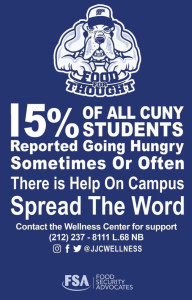 I have decided upon a new series (though I have not finished the previous series: Academia as a Hustle/ Everything I Know about Academia I Learned from Rick Ross). This series will only last for one week though: Monday through Saturday (Ima take Sunday off from blogging because that’s when I spend my time responding to student writing). I have been thinking a lot lately about the inherent hypocrisy of many “critical” teachers and scholars who have apparently found the answers to challenging our disciplines and universities. From a life committed to Black Feminist Pedagogy in a neoliberalist university, a decolonial refusal of whiteness and neoliberalism in colleges today is a relentless, exhausting endeavor that is never easy. So I’ll take this week off to keep my own self in check, call out my own mistakes and challenges, and ignore the complicity that folk wanna disguise as political intervention and reflection. If you ain’t real careful, folk out here will have you thinkin veiled misogyny, patriarchy, homophobia, transphobia, and/or anti-Blackness can represent you.
I have decided upon a new series (though I have not finished the previous series: Academia as a Hustle/ Everything I Know about Academia I Learned from Rick Ross). This series will only last for one week though: Monday through Saturday (Ima take Sunday off from blogging because that’s when I spend my time responding to student writing). I have been thinking a lot lately about the inherent hypocrisy of many “critical” teachers and scholars who have apparently found the answers to challenging our disciplines and universities. From a life committed to Black Feminist Pedagogy in a neoliberalist university, a decolonial refusal of whiteness and neoliberalism in colleges today is a relentless, exhausting endeavor that is never easy. So I’ll take this week off to keep my own self in check, call out my own mistakes and challenges, and ignore the complicity that folk wanna disguise as political intervention and reflection. If you ain’t real careful, folk out here will have you thinkin veiled misogyny, patriarchy, homophobia, transphobia, and/or anti-Blackness can represent you.
 So…my trek to campus started like every Monday… at the grocery store. I have a writing seminar this semester for seniors who are majoring in gender studies. After I spend the morning working on our class agenda, I stop at the grocery store to pick up food. I know that the students in my classes are hungry by the time we meet at 3:05pm (and go until 5:45pm). Most have more classes until late evening. In fact, our wellness center posted on the Gram that 15% of students at CUNY (City University of New York) have reported going hungry sometimes or often. That percentage is higher on my campus. I know what it’s like to have to study and go to school while hungry so the least I can do is TRY to feed my students in both body and mind (when my class size is at 36, I can’t afford this so we are struggling together in those moments).
So…my trek to campus started like every Monday… at the grocery store. I have a writing seminar this semester for seniors who are majoring in gender studies. After I spend the morning working on our class agenda, I stop at the grocery store to pick up food. I know that the students in my classes are hungry by the time we meet at 3:05pm (and go until 5:45pm). Most have more classes until late evening. In fact, our wellness center posted on the Gram that 15% of students at CUNY (City University of New York) have reported going hungry sometimes or often. That percentage is higher on my campus. I know what it’s like to have to study and go to school while hungry so the least I can do is TRY to feed my students in both body and mind (when my class size is at 36, I can’t afford this so we are struggling together in those moments).

 I was once excited to participate in these conferences at this
I was once excited to participate in these conferences at this 




